An uncertain future lies ahead for Nagorno-Karabakh following a swift Azerbaijani military takeover of the breakaway region, which gained de-facto independence in 1994. This region, historically inhabited by Armenians but internationally recognized as part of and currently controlled by Azerbaijan, has been at the center of multiple conflicts since the dissolution of the Soviet Union created a hard border between Armenia and Azerbaijan. The region’s tumultuous history has led to mistrust on both sides, culminating with a mass exodus of Armenians from the territory following Azerbaijan’s September offensive.
Over 100,000 people have already fled Nagorno-Karabakh for Armenia, representing nearly the entire region’s population. According to estimates, only 50-1,000 members of the region’s Armenian population remain. The mass exodus prompted Armenian officials and the European Parliament to accuse the Azerbaijani government of ethnic cleansing, a claim they denied. Responding to the growing refugee crisis, the UN established a mission in Nagorno-Karabakh, coordinating with aid agencies to provide humanitarian assistance and ensure the safety of migrants. Armenian authorities have criticized this mission for being too late, as the last bus carrying migrants left on Monday, October 2.
This wave of migration represents a drastic increase in the number of refugees and those in a refugee-like situation within Armenia, leading to hurdles in the coordination of services. The Armenian government is coordinating with the United Nations High Command for Refugees (UNHCR) to establish checkpoints and provide essential services and access to shelter for migrants. Many migrants desperately need aid, with severe health issues like malnutrition growing in the refugee population. Food and medicine insecurity had already been present in Nagorno-Karabakh due to Azerbaijan’s blockade of the region, which lasted from December 2022 to September 2023.
An explosion at a fuel depot in Nagorno-Karabakh has further worsened the dire situation, with 170 people dying and over 200 injured. “Every single bed in this 80-bed hospital is occupied with a survivor from the explosion in Karabakh,” World Health Organization (WHO) Special Envoy Robb Butler emphasized, speaking about a burns treatment center in Armenia’s capital of Yerevan, “Health workers here are working hard to treat and rehabilitate them, but this is a small country with limited capacity, and the needs are immense.” In a statement released on October 1st, the WHO committed to taking strong measures to assist both explosion survivors and the wider refugee population, including bringing in burn experts, medicine, and doctors and nurses from abroad.
Despite Azerbaijani assertions that Armenians choosing to remain in Nagorno-Karabakh will not be harmed, many migrants do not view return as a viable option due to fears of violence and discrimination. Armenia thus faces immense pressure to provide long-term access to work and other essential services such as housing, healthcare, and education. Armenia is a relatively small country with a population of roughly 2.78 million people. Incorporating these refugees and providing their required services will prove extremely difficult for the Armenian government. The UNHCR plans to assist up to 100,000 refugees with an urgent focus on reuniting separated children with their families, but this may not be enough to prevent a humanitarian crisis.
The situation has also led to political strife in Armenia, with ongoing protests erupting over the government’s handling of this situation. Protesters argue that the government was complicit during Azerbaijan’s takeover of Nagorno-Karabakh and did not do enough to defend historic Armenian land. Authorities have arrested hundreds of protestors; however, calls remain strong to remove Armenian Prime Minister Nikol Pashinyan.
Recent attempts at negotiations to build lasting peace between Armenia and Azerbaijan are in turmoil as Azerbaijani President Ilham Aliyev skipped a planned EU-sponsored October 4th meeting with Nikol Pashinyan. Aliyev is both unhappy with France’s decision to send arms to Armenia and France’s protest at having Turkey, Azerbaijan’s closest ally, present at the meeting. On Sunday, Aliyev stated that he would be willing to participate in peace talks mediated by Georgia should the Armenian government agree.
These negotiations would aim to lessen the possibility of further conflict between the two nations, which have fought multiple wars since they both gained independence from the Soviet Union. Conflicts between Armenia and Azerbaijan often arise from their disputed borders, making their recognition extremely important to lasting peace. Each state has interests in the other’s territory, and decades of tension have led to the two nations diplomatically and economically severing.
War breaking out between Armenia and Azerbaijan remains possible, as Azerbaijan possesses a growing military advantage. Azerbaijan is a significant oil producer, and it has emerged as an essential source of oil for European countries due to sanctions placed on Russia following the invasion of Ukraine. Its wealth has allowed it to acquire advanced military technology, creating a stark divide in the capabilities of the Azerbaijani and Armenian militaries. Furthermore, Armenia separates Azerbaijan from its exclave of Nakhichevan, incentivizing Azerbaijan to invade Armenia to create a land bridge between its mainland and Nakhichevan. Should they proceed, negotiations will attempt to formally demarcate borders to halt the possibility of further violent conflict.
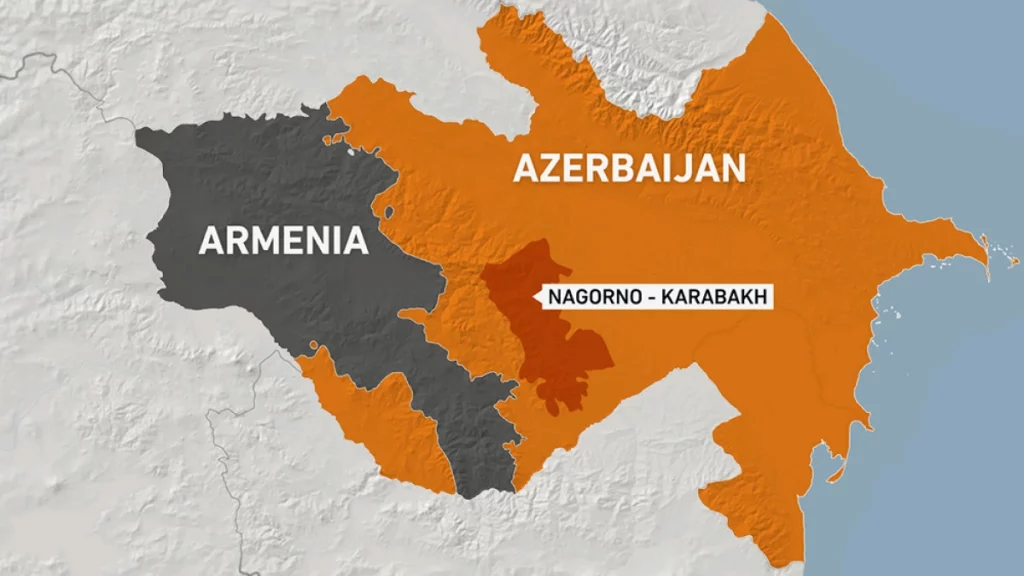
On September 30th, Azerbaijan claimed that Armenian snipers had opened fire on Azerbaijani troops stationed along the border in the Kalbajar region of Azerbaijan, killing one soldier. Although this claim could not be independently verified and was denied by Armenian authorities, it highlights the genuine tensions between the parties involved in future negotiations. Azerbaijan has also asserted that France’s recent move to send military aid to Armenia could cause another war between the two states. Azerbaijan’s move to retake Nagorno-Karabakh and the turmoil that has followed it has only served to inflame these tensions and create a greater risk of military conflict and sustained geopolitical tensions in the region.
The departure of nearly its entire population has also left Nagorno-Karabakh in a deserted state with an uncertain future.
“Here in the town centre, if I go quiet, you will be able to hear nothing,” Al Jazeera reporter Osama Bin Javaid said of the city of Stepanakert. “There is absolutely no one who is left here apart from some disabled and elderly.”
The Armenian Separatist government, which governed the territory under the Republic of Artsakh from 1994 to 2023, has begun a process of dissolution. Following the complete transition to Azerbaijani rule, Nagorno-Karabakh will be administered as a district of Azerbaijan. The departure of most ethnic Armenians from the region and the dissolution of their government sparked many challenging questions for authorities and the international community. These questions revolve around protecting the few Armenians who choose to or have to stay and safeguard the property of those who fled. Most migrants fled with few belongings, leaving most of their possessions behind to arrive in Armenia as quickly as possible.
The crises brought about by Azerbaijan’s recapture of Nagorno-Karabakh are rapidly shifting, and the international community must continue to pressure both sides to avoid conflict while assisting in the humanitarian needs of refugees. Like many other conflict-prone areas, the situation in Nagorno-Karabakh is exceptionally delicate. Hundreds of thousands have fled their ancestral homeland, leading to significantly volatile humanitarian conditions. Beyond that, there is growing animosity between the two countries, which has only been inflamed by recent events. The importance of successful negotiations between Armenia and Azerbaijan cannot be overstated, as escalation and broader conflict between the two nations remain grave possibilities.
Feature Image Source: The Telegraph
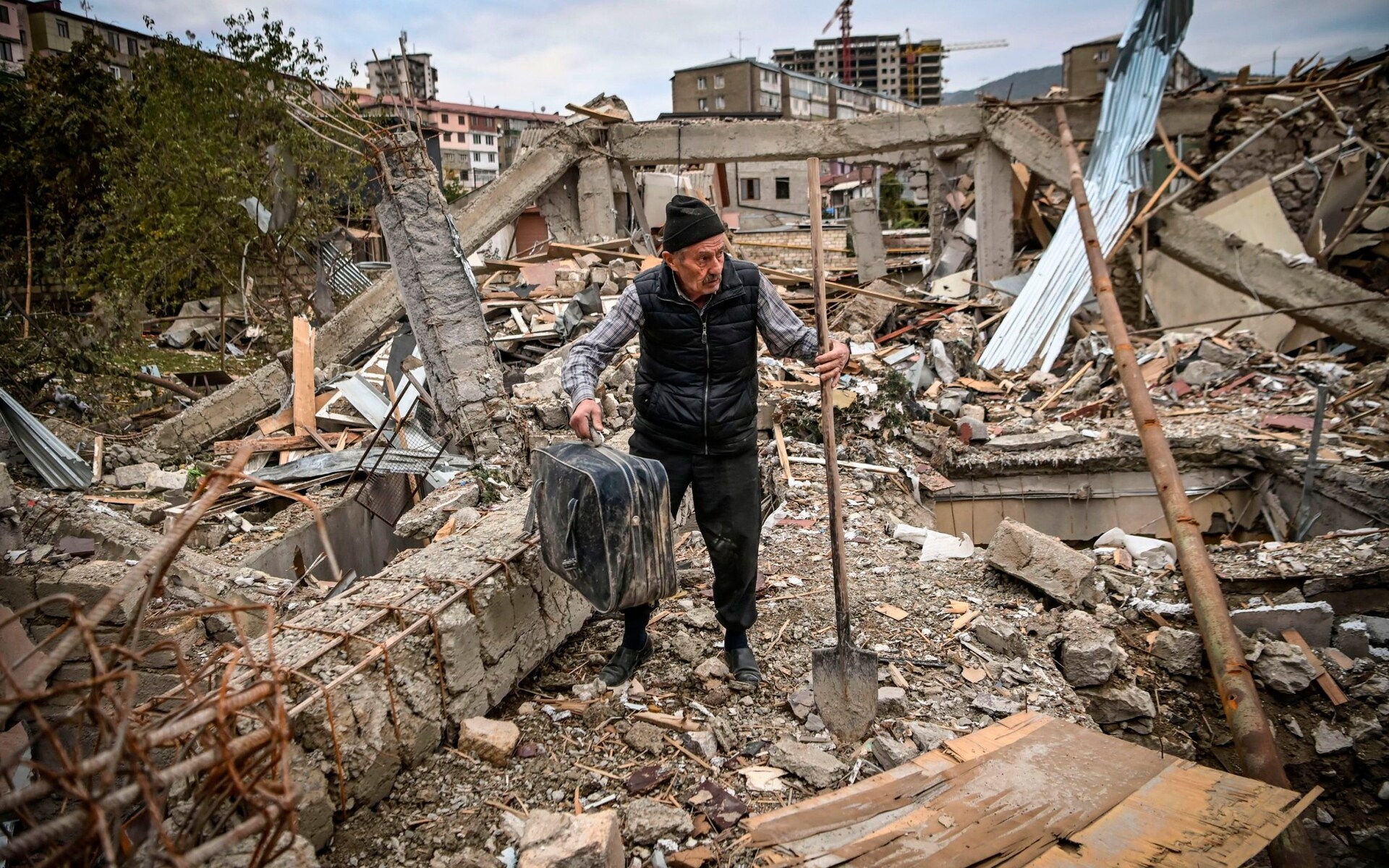
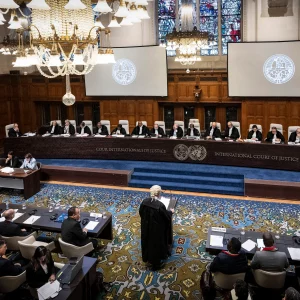





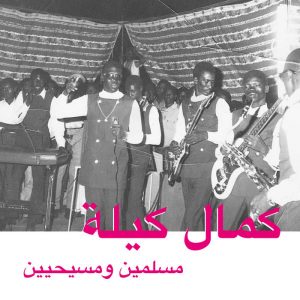
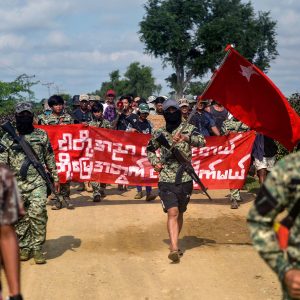


Comments are closed.